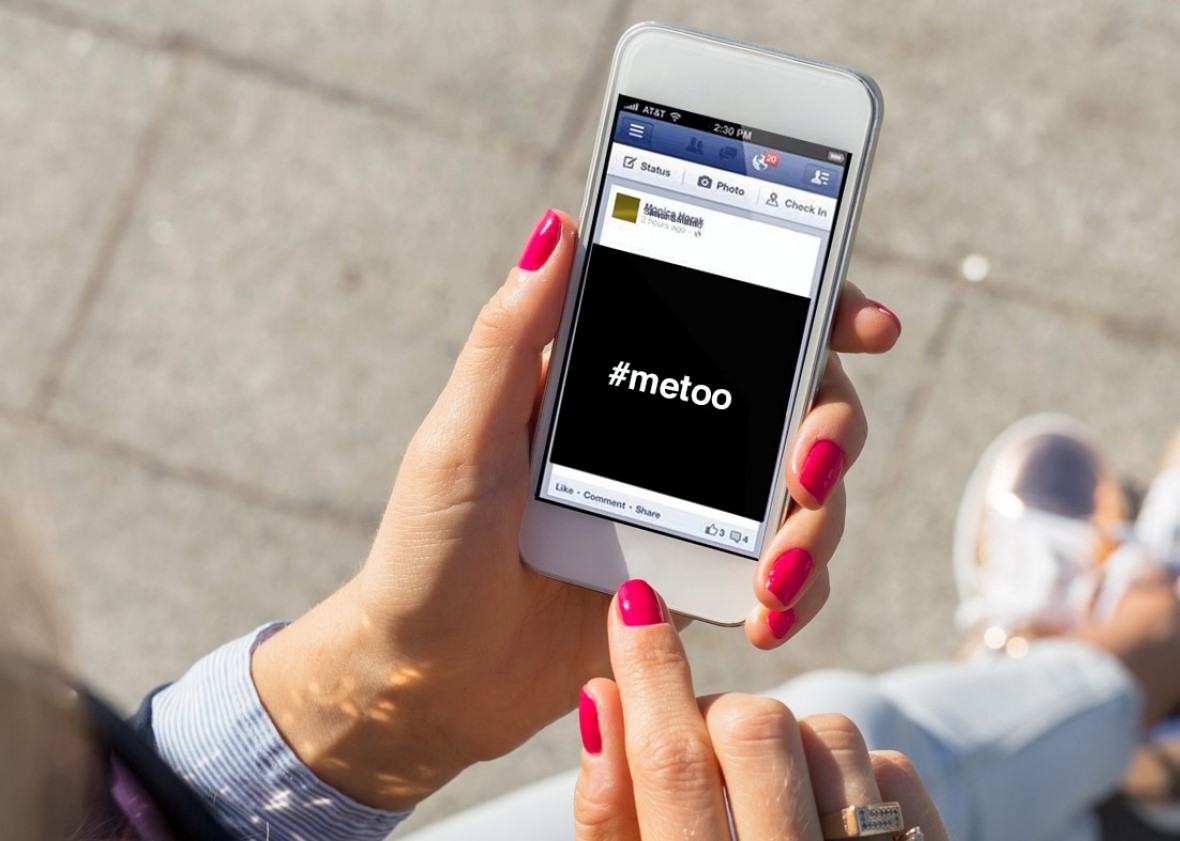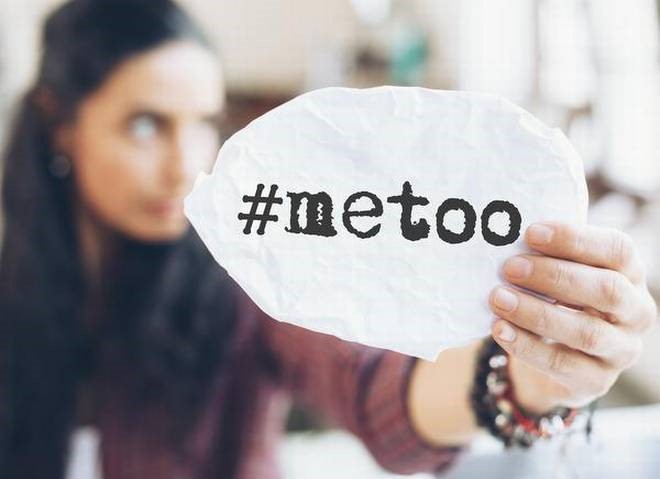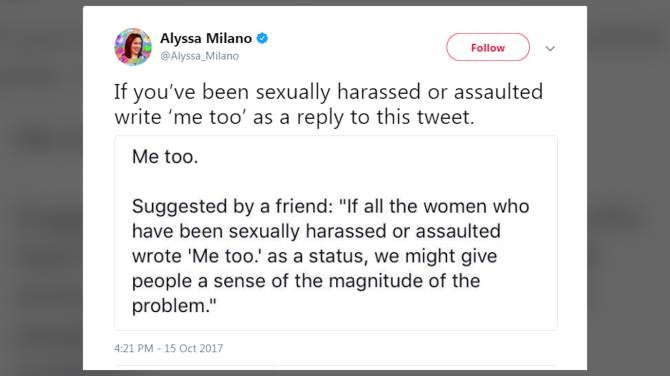It is no secret that in the news recently there has been a lot of allegations against stars in Hollywood and the emergence of the Me-Too hashtag has left a lot of people confused. Is it related? Why has my friend put it on Facebook / twitter / Instagram? Should I? I’m here to explain what it is and why it’s so important.

 Unfortunately, sexual harassment and sexual assault is still seen as a ‘blurred line’ (don’t even get me started on that awful song) and far too many people have experienced it in their lives – the prevalence of this hashtag proves it. Facebook reported that over forty five percent of their United States users had a friend who posted the term.
Unfortunately, sexual harassment and sexual assault is still seen as a ‘blurred line’ (don’t even get me started on that awful song) and far too many people have experienced it in their lives – the prevalence of this hashtag proves it. Facebook reported that over forty five percent of their United States users had a friend who posted the term.
This hashtag was created to encourage any women who have been affected by sexual harassment to come forward and speak up. It came into existence when the actress Alyssa Milano posted on twitter a call to arms from her friend that women who have been harassed or assaulted sexually should post ‘Me Too’ to give people a sense of the magnitude of the problem. It was, quickly, picked up by the public and took Twitter, then Facebook, then Instagram, by storm.
By this point the scandal involving Harvey Weinstein had spread to include most of Hollywood; actresses such as Angelina Jolie and Gwyneth Paltrow, as well as many others, had made accusations against Weinstein for inappropriate conduct.
The most interesting part of this is that the allegations, at this point, were still just allegations but it didn’t matter – the idea that famous actors and actresses were speaking out about this problem was enough to inspire ordinary people to also speak out. These ‘silence breakers’ have since been named TIME’s person of the year for 2017; proving that the truth, especially in the huge numbers demonstrated, has power.
This is important because it shows the magnitude of the problem. Alyssa Milano woke up to thirty-two thousand replies in the twenty-four hours following her initial tweet, by October 16th 2017 it had been tweeted more than five hundred thousand times, and used more than four million times on Facebook.

This is not a problem limited to women either – men have also been using it to speak out about their own experiences. Over 30% of the #MeToo posts were by men. This is a very underexposed area and something I will have to go into some other time!
Unlike many kinds of social-media activism, it isn’t a call to action or the beginning of a campaign, culminating in a series of protests and speeches and events. #metoo is simply an attempt to get people to understand even though it feels very far away, in the far reaches of Hollywood, sexual assault is much closer to home than we realise.
Georgia McCalmont is a final year BSc in Communication Management and Public Relations student at Ulster University. She can be contacted on Twitter @04Georgia or Instagram @Georgiamac26.